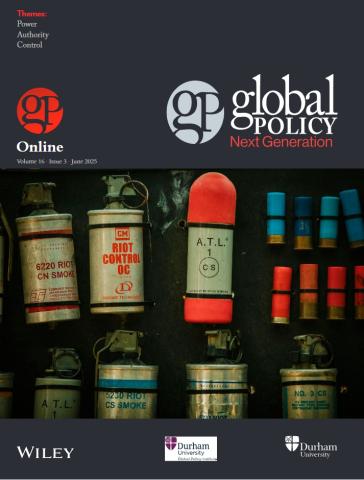
Global Policy: Next Generation is an annual issue from Global Policy and is funded by the Global Policy Institute. The Institute is hosted in the School of Government and International Affairs and is a joint venture with the Durham Law School. This multi-disciplinary, peer-reviewed publication provides a platform for postgraduate and early career researchers to publish research on-par with the most rigorous of academic journals. We seek out the next generation of groundbreaking research in global policymaking and broaden horizons in terms of both content and authorship.
Editorial
Editorial - Natalie Braun, Jessica Eastland-Underwood, Rob Hanson, & Aasim Khan
Research Articles
Policy Analysis
Special Section Articles
Digital Yes-Men: How to Deal With Sycophantic Military AI? - Jonathan Kwik
Read also:
Fifth Edition
Fourth Edition
Third Edition
Second Edition
First Edition
